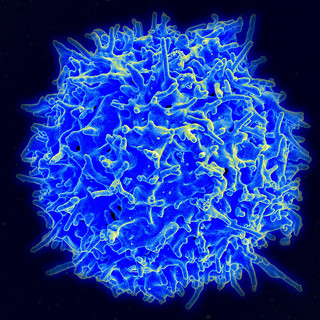New Living Drug To Kill Leukemia

According to AFP, researchers have tried a new approach to kill leukemia cells using the patient's own immune system. As a result, about 88 percent of trial patients have been cured of the blood cancer.
The trial, which was published in the Science Translational Medicine journal, involved 16 people who suffered from what is called adult B cell acute lymphoblastic leukemia (ALL). According to cancer.org, ALL is a form of leukemia that starts from white blood cells called lymphocytes. The term "acute" refers to the fact that the cancer spreads fairly quickly, and if untreated, can be fatal.
Just in 2014, cancer.org has reported 6,020 new cases of ALL and about 1,440 deaths from this particular cancer.
Therefore, this new "living drug" will be a major breakthrough for cancer cure research.
Although children are more prone to contracting ALL, the median age of the people involved in the trial was 50 years old. All of the patients were either close to death, relapsed, or revealed that chemotherapy wasn't working on them. According to AFP, patients often relapse and become immune to chemotherapy.
Out of the 16 patients involved, 14 experienced complete acquittal after their T cells were genetically engineered to focus on getting rid of the cancerous cells. The process involved genetically "re-educating" the T cells, a lymphocyte that plays a vital role in cell-mediated immunity. Some of the cells are removed, and they are altered to recognize a protein known as CD19 on the cancer cells. This way, the T cells can attack the cancerous cells.
Without this "drug," only about 30 percent of relapsed patients would respond to restorative chemotherapy. This breakthrough has been called a phenomenon that will change the way cancer therapy is approached.
While doctors are still trying to figure out why the therapy didn't work on all patients, the therapy itself remains expensive. The AFP reports it to cost about $100,000 per patient. However, researchers believe that this price will decrease as pharmaceuticals become involved.
Reach Executive Producer Beatrice Verhoeven here. Follow her on Twitter.



